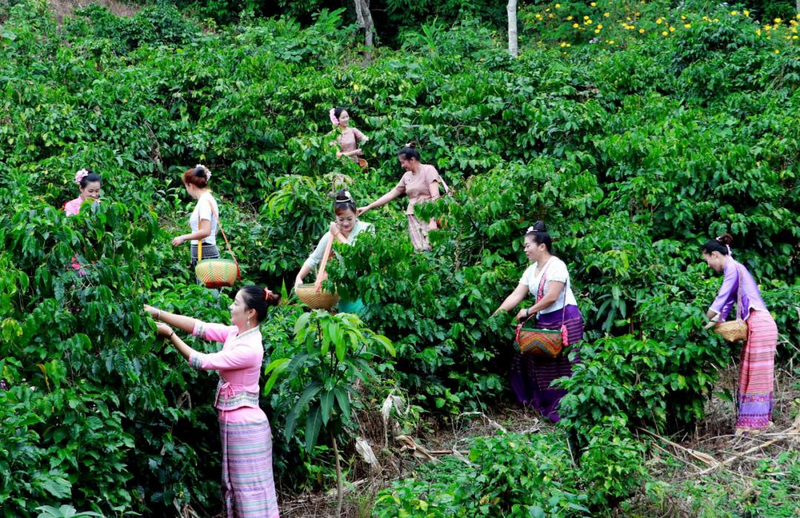What began in 1904 as a single Arabica seed planted by French missionary Henri Audet in Zhu Kula has grown into a full‑blown coffee revolution. Today, Yunnan province accounts for over 98% of China’s coffee acreage, fueling the nation’s fastest‑growing agricultural sector and making waves on the world stage.
Market research firm Beetlez Consulting values the global coffee market at RMB 840.2 billion in 2024, with China carving out RMB 143.7 billion of that total. Domestic consumption has surged to 350,000 tonnes by 2023, a 167% year‑on‑year jump, according to the World Chinese Catering Federation’s China Coffee Industry Report 2024.
Big names moved in after Nestlé set up its first agronomy service center in Simao (now Pu’er) in 1988. By 2009, Starbucks was sourcing Yunnan beans, later opening its first Asian C.A.F.E. Practices support hub in Pu’er in 2012. On the home front, Luckin Coffee launched a 5,000‑tonne fresh‑fruit processing plant in Baoshan this year, while Manner, Seesaw and M Stand have built dedicated buying stations and roasting facilities.
Global supply hiccups—ranging from extreme weather in Brazil and Vietnam to tightening stocks in Colombia and Ethiopia—have driven Arabica futures above 400 cents per pound. Locally, green‑bean prices top RMB 60 per kg, and rare Geisha beans fetch up to RMB 2,000 per kg, spotlighting Yunnan’s premium potential.
In 2022, the provincial government unveiled the “Coffee Six Policies,” promoting elite cultivars, streamlined processing, branded estates, quality certification and financial support. By mid‑2024, 14 boutique estates were certified, lifting the premium‑bean rate to 22.7%—up 8.4 percentage points in two years.
Exports tell a similar story. Yunnan shipped 32,500 tonnes of coffee in 2024—a 358% jump year‑on‑year—to markets across Europe, North America and Southeast Asia. As infrastructure, cultivation methods and processing technologies evolve, industry analysts predict Yunnan coffee will cement its place on the global coffee map, showcasing China’s rising influence in a once-Western‑locked sector.
Reference(s):
Yunnan Coffee Blossoms into a Global Force in China's Booming Market
thepaper.cn




